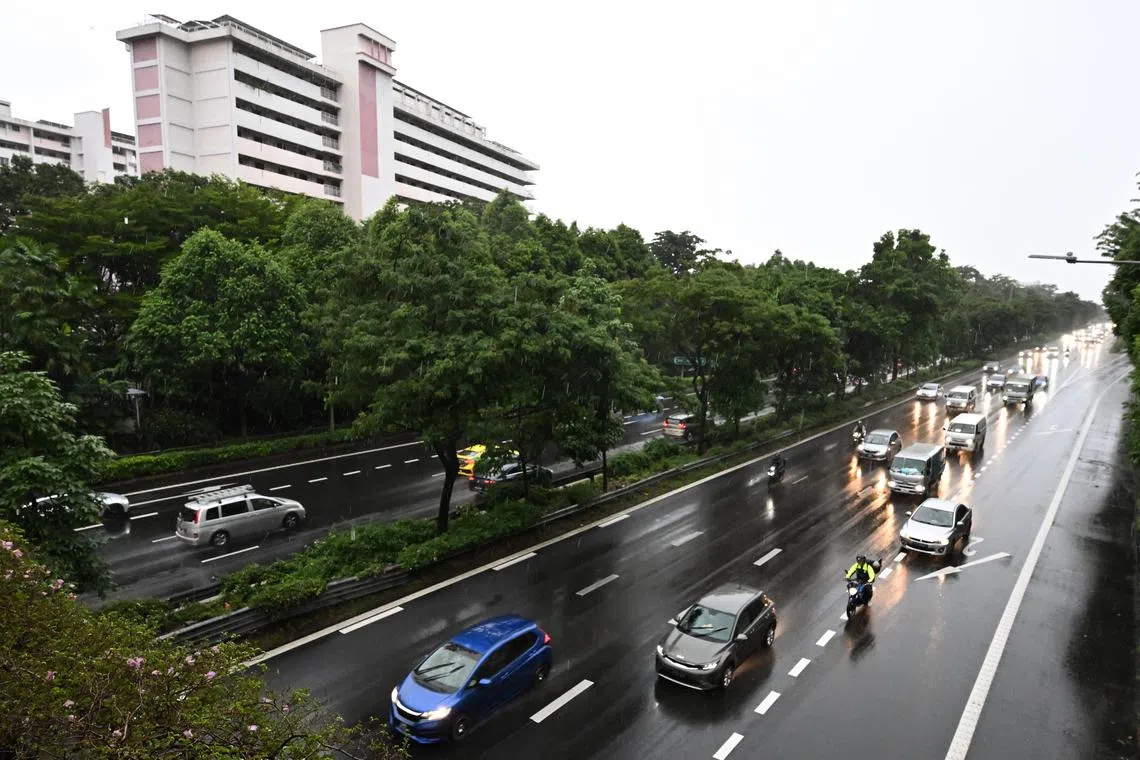Share of COEs secured by car-leasing firms falls to 10% so far in 2024: Chee Hong Tat
Sign up now: Get ST's newsletters delivered to your inbox

Only 2 per cent of successful bidders for car COEs were foreigners in 2023 and 2024.
PHOTO: ST FILE
Follow topic:
SINGAPORE – One-tenth of the certificates of entitlement (COEs) for cars secured between January and October 2024 went to car-leasing companies. This is down from 24 per cent in 2023 and 26 per cent in 2022.
Transport Minister Chee Hong Tat revealed these figures in Parliament on Nov 12. He said that among the main drivers of the increase in COE premiums in recent quarters was likely the strong demand from individual Singapore buyers, and not foreigners or car-leasing companies.
Only 2 per cent of successful bidders for car COEs were foreigners in 2023 and 2024, compared with 3 per cent in 2022.
Mr Chee was responding to questions from MPs about COE supply and premiums.
“The decrease in the proportion of bids won by car-leasing companies also illustrates why the suggestion of having a separate COE category for private-hire cars, and moving existing quota from Cat A and B into this separate category, is not a straightforward exercise,” Mr Chee said.
He added that demand for COEs from car-leasing companies can vary quite a bit from quarter to quarter, and from year to year, and it is difficult to work out the number of COEs that these companies will require to meet the needs of point-to-point drivers and passengers.
Private-hire cars are registered using the same categories of COEs as private cars. Category A is for smaller, less powerful cars and electric vehicles, while Category B is for larger, more powerful ones.
Mr Chee stated again that if too much of the COE quota is moved from the car categories to a new category for private-hire cars, Category A and B premiums could increase as it would lower supply in those categories. Yet, if the authorities do not move enough quota to the new category, this would result in an inadequate supply of private-hire cars, which would in turn raise prices for passengers. “These are difficult trade-offs,” he said.
Workers’ Party MP Louis Chua (Sengkang GRC) said the data suggests that leasing companies do influence COE premiums, noting that in 2012, the Land Transport Authority removed taxi companies from the COE bidding process because they were taking up to 25 per cent of the supply of Category A COEs then.
Mr Chee said that while the percentage of bids won by car-leasing companies in 2024 has come down from 2022, COE premiums have gone up. “So this is one indication that the main driver for the increase in the COE price is unlikely to be private-hire car leasing companies.
“Now, having said that, I am certainly not saying that they don’t contribute to the overall demand. They do. That is a fact.”
The Transport Minister added that his ministry is “not ruling out the possibility” of having a separate category of COEs for private-hire cars, but he said that doing so will not mean a sudden “windfall of COE supply falling from the sky”.
Instead, it will still have to be transferred from the existing quota from the two car COE categories.
As at Sept 30, the population of private-hire cars in Singapore stands at 87,845, compared with 79,249 a year ago.
Some 39,082 car category COEs were announced for 2024, compared with 26,984 in 2023.


